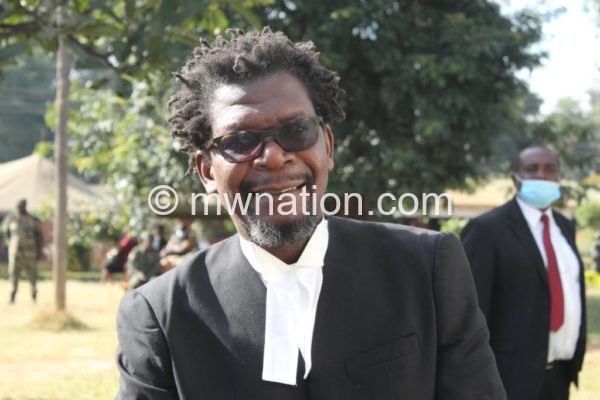K29bn gone!
Poorly-drafted contracts, unlawful dismissals and redeployment of heads of government ministries, departments and agencies (MDAs) have cost taxpayers K29 billion between 2018 and 2020, communication from the Attorney General shows.
In an internal communication dated August 20 2020 addressed to Vice-President Saulos Chilima, Secretary to the President and Cabinet (SPC) Zangazanga Chikhosi and all heads of public institutions, Attorney General (AG) Chikosa Silungwe tackled a wide range of issues, including cautioning the new administration against falling into the same trap.

But while the AG did not cite specific cases, the communication comes amid a litany of transfers in government following the change of power through the court-ordered June 23 Fresh Presidential Election which ousted Democratic Progressive Party (DPP) and ushered in the Tonse Alliance led by Malawi Congress Party president Lazarus Chakwera.
In the communication, Silungwe asked to be involved in the drafting of all government contracts in a bid to save public funds.
Quantifying the cost, he said in the letter: “As at 17 August 2020 and for the financial years 2018/19 and 2019/20, the total judgement debt against the State stands at approximately K29 billion.”
The stated amount is several attempts yesterday while Minister of Justice and Constitutional Affairs Titus Mvalo said Silungwe was better-placed to comment on the matter.
In the communication, Silungwe also tackled the subject of secondment and observed that it was provided for in the Malawi Public Service Regugulations; hence, any purported secondment outside this legal framework was illegal.
He said: “Secondment is a temporary movement of an employee with consent from one ministry, department or agency to another ministry, department or agency to perform the function of a position that already exists or to take up a special project.
“The employee maintains his or her substantive position in the ‘sending’ ministry, department or agency. More critically, the secondment must be at the request of the ‘receiving’ ministry, department or agency.”
Besides, the AG also clarified on the role of the SPC in secondment of employees, saying the SPC should only be involved in the secondment of Principal Secretaries or heads of public institutions.
“In all other cases, he cannot and must not be involved. Any involvement is tantamount to procedural impropriety and illegal. In all other cases, the Principal Secretaries are in charge of the process outlined in para 10,” he said.
The AG also scoffed at a practice “that has emerged in recent years where a public officer is informed that he or she been posted to the Office of the President and Cabinet where they shall be assigned new responsibilities,” saying such officers report for work and do nothing.
He said: “Illegal deployment is costly. Lately, the State has been ordered to pay over K700 million and K500 million because of illegal deployment of officers. Fair labour practice is paramount principle under Malawi’s labour law. The courts in Malawi have relentlessly upheld this principle.”
Reacting to the development, private practice lawyer John-Gift Mwakhwawa applauded Silungwe for the move, but called for more concrete follow-ups, including beefing up of legal teams at Attorney General Chambers and ensuring that those in breach of the steps are taken to task.
Benedicto Kondowe, chairperson of the National Advocacy Platform (NAP)—an umbrella body of some 60 civil society organisations, described the memorandum as timely.
He said the communication was an indication that the AG had observed worrying trends in the government systems which prompted his action to clean up the system.
Two weeks ago, the AG also stopped the OPC from seconding to the Ministry of Justice and Constitutional Affairs an official whose position, chief legislative officer, was already occupied by another officer and the ministry did not request the secondment.
The decision also comes as Chakwera, who stormed to office with a pledge for more respect for rule of law and good governance, faced criticism in the early days of his tenure for breaking the law in the appointment of some boards of State enterprises and officers, including at Malawi Revenue Authority, Malawi Police Service and Reserve Bank of Malawi.





